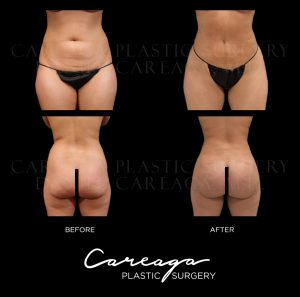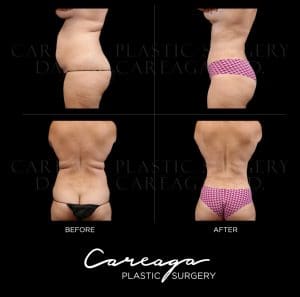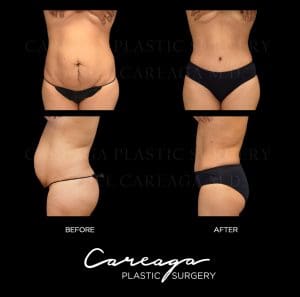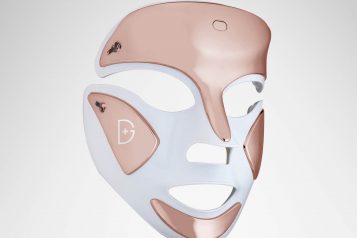Body lift surgery includes a variety of procedures that are designed to remove excess skin and improve body contours, and it is frequently performed after massive weight loss to address excess, overstretched skin that lacks the elasticity necessary to conform to the body’s new shape. Coral Gables, Florida plastic surgeon Dr. Daniel Careaga explains, “Massive weight loss can drastically improve a person’s life with the unfortunate consequence of loose, saggy unsightly skin. Almost every part of the body can be affected by this, including the face, neck, arms, breasts, abdomen and thighs. Fortunately, each of these can be improved with procedures such as a facelift, arm lift, breast lift, tummy tuck or thigh lift. Each of these procedures involves lifting and removal of excess skin, and can truly complete the person’s weight loss journey.”
Dr. Careaga says, “The ideal patient for body contouring procedures is someone near their ideal body weight, in good health, non-smoker with realistic expectations of what plastic surgery can achieve.” In most cases of massive weight loss, a lower body lift procedure is the ideal approach for removing excess skin and tightening the underlying tissues of the abdomen, waist, groin, buttocks and thighs in a single surgical procedure. A lower body lift usually requires a bikini-shaped incision, and liposuction may be used to remove excess fat and enhance the final outcomes as well.
Patients with significant sagging of the arms and breasts can be candidates for an upper body lift. Similar to a lower body lift, this procedure tightens underlying tissues and removes excess skin to improve the body’s contours. Dr. Careaga often recommends breast augmentation in conjunction with a breast lift or upper body lift to obtain the optimal results.
It’s important to know that recovery after a body lift procedure takes time. Most patients are asked to take at least two to three weeks off from work, and discomfort or pain can persist throughout this period. Patients must also wear post-surgical compression garments as instructed, and avoid strenuous activity for at least three weeks. It generally takes six weeks for 75% of the post-surgical swelling to subside, and 95% of the swelling will go down within three months.
Patients also have to accept that this procedure requires multiple, sometimes significant incisions. “The main trade-off associated with skin-removal procedures are the scars, which fade with time over the months following surgery—and lingering scars can always be improved with non-surgical treatments once healing is complete,” Dr. Careaga shares. Body lift results are long-lasting, but they can be affected by pregnancy, the natural aging process and weight fluctuations.
Despite the extensive nature and recovery associated with body lift procedures, most patients are overwhelmingly happy with their improved shape and increased confidence after surgery. Dr. Careaga says, “The patient journey from obesity to massive weight loss is like an emotional roller-coaster. The psychologic benefit of losing all the excess weight can be diminished by the presence of loose unsightly skin. In many cases, skin-removal procedures such as these help the patient have self-confidence for the first time in their life.”



“Photos courtesy of Dr. Daniel Careaga. For additional photos, click here.”
For more information, visit Dr. Brian A. Levine's social media:

























